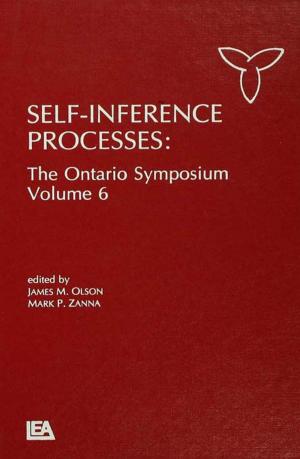Sexual Offenders
Personal Construct Theory and Deviant Sexual Behaviour
Nonfiction, Health & Well Being, Psychology, Forensic Psychology, Clinical Psychology, Human Sexuality| Author: | James Horley | ISBN: | 9781135449278 |
| Publisher: | Taylor and Francis | Publication: | June 30, 2008 |
| Imprint: | Routledge | Language: | English |
| Author: | James Horley |
| ISBN: | 9781135449278 |
| Publisher: | Taylor and Francis |
| Publication: | June 30, 2008 |
| Imprint: | Routledge |
| Language: | English |
Is there an alternative way of treating sexual offenders beyond traditional psychiatry?
Sexual Offenders explores and develops personal construct theory in terms of forensic and social psychology, and examines the possibilities for sexual offender assessment and therapy.
Rather than viewing sexual offenders as having a mental illness or possessing a set of pathological personality traits, personal construct theory indicates that all people learn particular ways of understanding their own experience, and use these 'personal constructs' to anticipate the future. Through a variety of experiences, sexual offenders appear to develop a set of constructs that demands a particular understanding of themselves and other people. James Horley suggests that if they desire change sexual offenders can alter these constructs through psychotherapy. Sexual Offenders describes a number of techniques used by the author and other clinicians as well as presenting new and more dynamic approaches to psychological assessment.
Based on over 20 years of the author's clinical and research work, this book will provide professionals and students in the field of forensic psychology and psychiatry with an alternative way of treating sex offender clients.
Is there an alternative way of treating sexual offenders beyond traditional psychiatry?
Sexual Offenders explores and develops personal construct theory in terms of forensic and social psychology, and examines the possibilities for sexual offender assessment and therapy.
Rather than viewing sexual offenders as having a mental illness or possessing a set of pathological personality traits, personal construct theory indicates that all people learn particular ways of understanding their own experience, and use these 'personal constructs' to anticipate the future. Through a variety of experiences, sexual offenders appear to develop a set of constructs that demands a particular understanding of themselves and other people. James Horley suggests that if they desire change sexual offenders can alter these constructs through psychotherapy. Sexual Offenders describes a number of techniques used by the author and other clinicians as well as presenting new and more dynamic approaches to psychological assessment.
Based on over 20 years of the author's clinical and research work, this book will provide professionals and students in the field of forensic psychology and psychiatry with an alternative way of treating sex offender clients.















